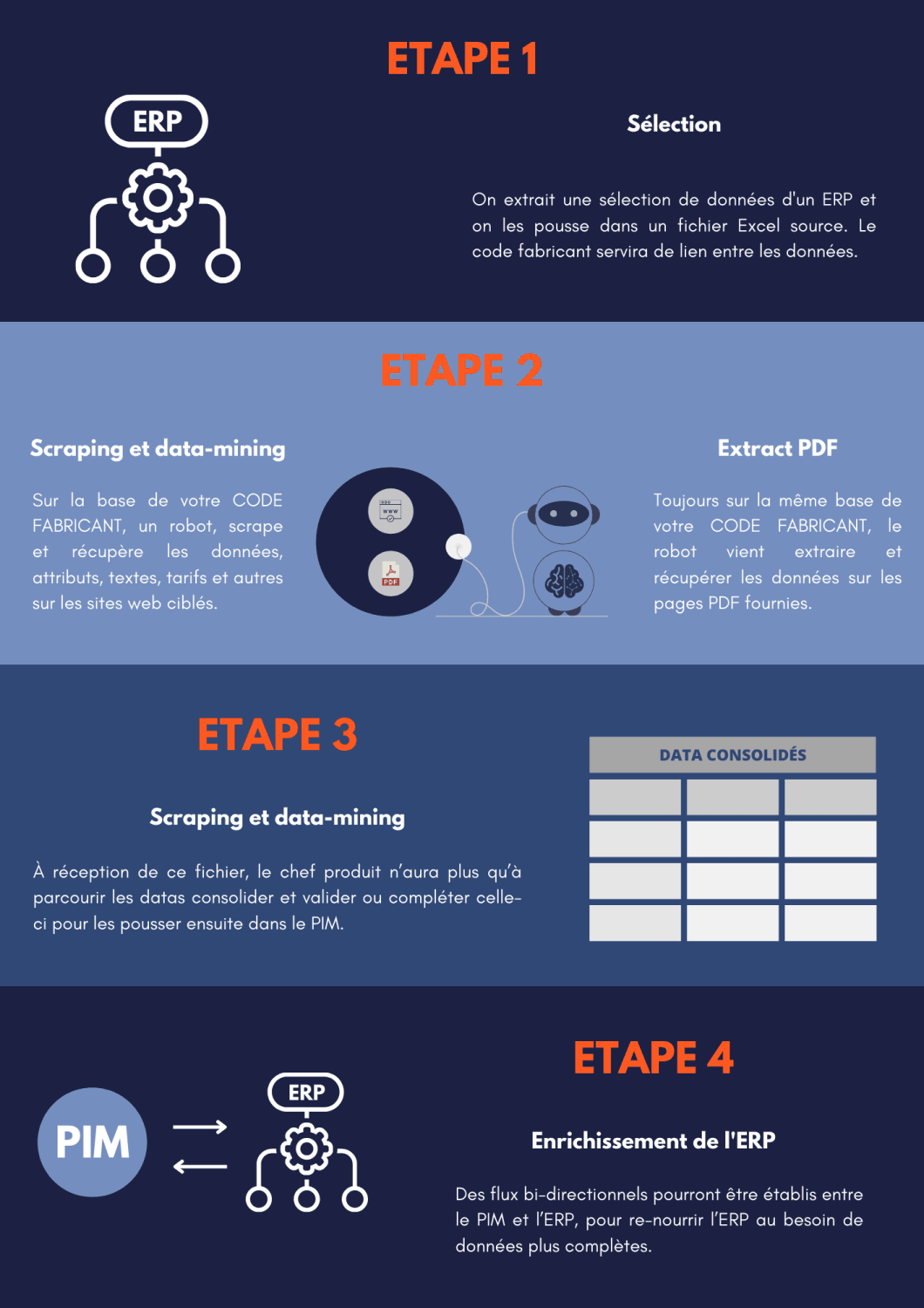Le champ des SIREN
Samuel Dorven |
27 avril, 2022 |
Le champ des SIREN
👋 Hello everyone and welcome to our new subscribers,
We're delighted to welcome you to the fourth edition of the SmartMyData newsletter. We look forward to seeing you every 15 days to keep you up to date with the latest news from the world of automation and RPA.
📰 The siren function on the SmartMyData platform
Do you need to quickly retrieve information on one or more companies ? The siren function on the SmartMyData platform enables you to retrieve all known data on a company via its Siren number, using the data.gouv.fr API.
The API returns no less than a hundred pieces of information, including contact details, headcount range, geolocation...
It can be used for a wide range of purposes, the most frequent being to complete or check information before integrating it into a database.
Another use case could be in sales: you push your customer database, retrieve the information and, via a Datavisualization application, immediately see where your customers are, what type of structures they have, average headcount, etc...
❤️ How to automate catalog creation?
Here's an article by Stéphane Vauxion on how to automate data upstream of catalog creation. In fact, it's not uncommon to have a considerable lack of data when creating a catalog. The preliminary consolidation work can quickly become tedious when thousands of references need to be managed.
An Easycatalog specialist, Stéphane uses the example of a paper catalog, but the approach can be exactly the same for a website.

The article : How to automate catalog creation ?
😊 Well-being at work
We all have this preconceived notion that if we work hard, then we've worked well. True, but isn't there a better way (more efficient and less tiring) to work, using the right tools?
C’est ce que nous explique Thibault Louis dans son article "Bosser dur est indispensable pour réussir!" .

📣 The offbeat anecdote
We carry out pre-deployment audits of RPA solutions, with the aim of identifying the main quick wins that the solution could bring.
The audit very often consists of a series of interviews, during which we listen carefully to employees describing precisely what their work involves. We then make a note of their personal workflow. People often take a past job to explain what the task involves.
During an audit for a company, out of 4 interviews and 4 documents opened as demos, 3 interviewees noted errors in their documents on rereading! This doesn't mean that 75% of the documents had errors, but it does mean that the percentage of errors was not anecdotal.
The conclusion is that you can't ask employees to perform complex, mind-numbing tasks, and expect them to be 100% focused on their mission. Software robots, on the other hand, do this very well :)